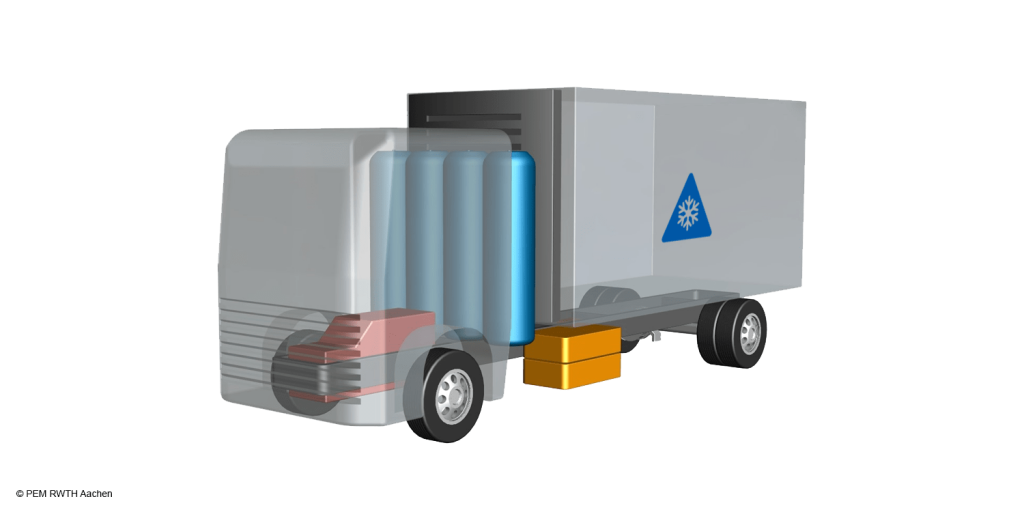A German consortium, led by Orten Fahrzeugbau, is spearheading the H2Kit project, which aims to develop a fuel cell-based conversion kit for commercial vehicles with energy-intensive auxiliary consumers, such as refrigerated trucks. The objective is to transform these vehicles into more efficient electric vehicles.
Over a period of two years, the partners involved in the project aim to achieve a lower battery weight and a more flexible regulation of the power supply by incorporating a fuel cell range extender. The project has a total volume of around three million euros and is being funded by the German federal government. It is expected to run until the end of November 2024. Along with Orten, the Production Engineering of E-Mobility Components (PEM) chair at RWTH Aachen University and AE Driven Solutions GmbH are also involved in the project, with Meyer Quick Service Logistics GmbH & CO. KG onboard as well.
See also: Stellantis Launches Fast-Charging Station Initiative in Italy as Part of European Network Expansion
The project partners believe that in order to achieve climate targets, it is essential to retrofit and convert existing vehicles, in addition to developing new ones. However, when alternative powertrain concepts are implemented, transferability to future series production is often overlooked, as stated by the PEM Chair of RWTH Aachen University in a press release. Peripheral component innovation integration is also not always given sufficient consideration. Therefore, the idea of developing a modular conversion kit from a range extender system that is both economically viable and can be utilized by all vehicle manufacturers came about.
To achieve this, the kit will be tested in a truck prototype for its functionality and integrability, as announced by the PEM. Furthermore, the research partners aim to share their results and experiences with all interested parties.
“Vehicle-specific design and production of electric powertrains has not yet been possible at competitive costs,” said PEM director Professor Achim Kampker. Special applications such as refrigerated trucks require maximizing battery capacity due to their high and varying energy demand. This, in turn, leads to a disproportionately high vehicle mass and low payload. “Logistics companies, however, need the lowest possible vehicle weight to maximize transportable payload and keep fuel costs low,” added Kampker, who was also involved in the investment of the Streetscooter electric transporter.
The H2Kit project’s aim to develop a fuel cell-based conversion kit for commercial vehicles has great potential for reducing carbon emissions and enhancing vehicle efficiency. The project’s partners hope to bring about a positive impact on the environment, the logistics industry, and the automotive sector as a whole.
